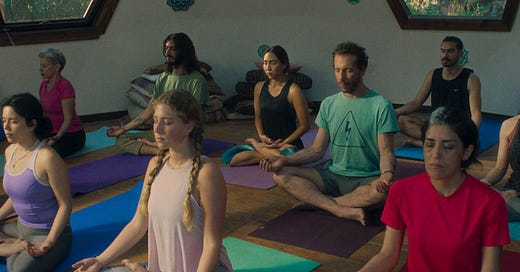Watching
Tótem (2023) – Mexico
Young girls are always learning about mortality in the movies, or so it seems as of late (see: Petite Maman, Summer 1993, etc.). Lila Avilés’ take on the subgenre isn’t strictly confined to the perspective of its youngest star, but it’s a child’s side of the story—and how it fits into the world of the adults around her—that …




